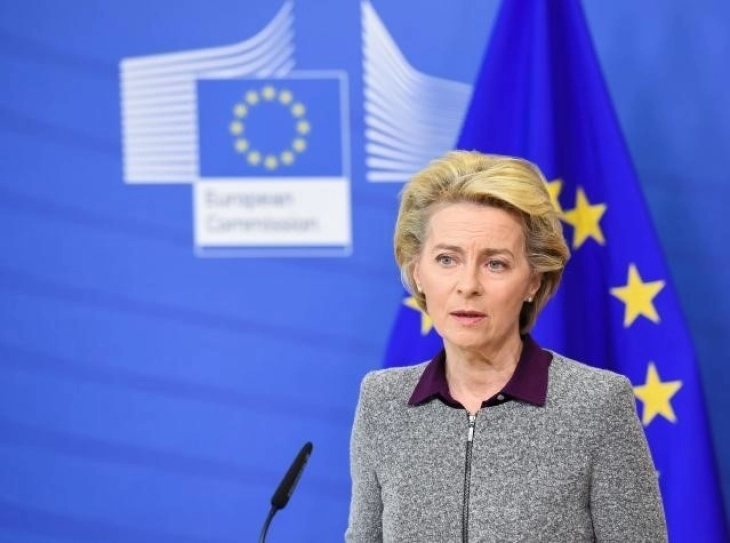EU agrees to tighten asylum system in sweeping migration reform
- EU states and the EU Parliament have agreed to significantly stricter asylum procedures in a major reform of the European asylum system.

Brussels, 20 December 2023 (dpa/MIA) - EU states and the EU Parliament have agreed to significantly stricter asylum procedures in a major reform of the European asylum system.
The painstakingly negotiated compromise announced on Wednesday provides for numerous additions and tightening of the existing rules with the aim of reducing irregular migration to the European Union.
"It’s been a long road to get here. But we made it. Europe is finally delivering on migration," said European Commission Vice-President Margaritis Schinas on X, describing the deal as a "breakthrough."
European Parliament President Roberta Metsola said Wednesday "will go down in history. The day the EU reached a landmark agreement on a new set of rules to manage migration and asylum."
The reform has been the subject of intensive work since 2015, when record numbers of migrants arrived in the EU.
While countries with right-wing governments, like Hungary, were strongly in favour of tightening existing rules, aid organizations and Europe's political left expressed concerns about the degradation of human rights.
The reform "will ensure that there is an effective European response to this European challenge," said European Commission President Ursula von der Leyen.
"It means that Europeans will decide who comes to the EU and who can stay, not the smugglers," she added.
The reform, for example, foresees a much stricter handling of people from countries that are considered relatively safe. Until a legal decision is made on their asylum application, asylum seekers are to be housed in reception centres under strict rules.
German Chancellor Olaf Scholz welcomed the reform deal and said it would bring some relief for certain countries.
"This will limit irregular migration and relieve the burden on countries that are particularly affected - including Germany," the SPD politician wrote on the online platform X, formerly branded Twitter.
The agreement was a "very important decision," he wrote.
Despite criticism from refugee rights organizations, Interior Minister Nancy Faeser also said she was very satisfied.
"If we want to preserve the Europe of open borders internally, we must protect the external borders and achieve functioning procedures," she said, according to a ministry statement.
German Foreign Minister Annalena Baerbock described the deal as "urgently necessary and long overdue."
In view of the freedom of movement in Europe, reliable rules in this area are needed for everyone, the Green politician said in Berlin on Wednesday. She conceded that not all of Germany's concerns had been addressed in the agreement.
For the first time, the EU states would be obliged to take part in a so-called solidarity mechanism to distribute migrants, Baerbock stressed. "Because the inhumane conditions at the EU's external border must not remain the face that Europe shows to the world."
The Greens and the hard-left Die Linke party in Germany in particular were concerned about human rights standards during the negotiations.
"As Germany, we were unable to get our way on the blanket exemption of children and families from border procedures," Baerbock conceded. "We will now pay all the more attention to ensuring that the new asylum system is fair, organized and based on solidarity."
While the European People's Party, which includes the conservative political groups in the European Parliament, hailed the agreement as a "historic deal," left-leaning EU lawmakers were quick to criticize.
"The negotiators agreed to undermine the right to seek asylum," said German EU lawmaker Damian Boeselager, who is a member of the European Greens.
"This new system will make sure we have prison camps at our borders and should have never been accepted," Boeselager said.
Under the new system, the distribution of people seeking protection among the bloc's 27 member states is be reorganized under a new set of rules dubbed a solidarity mechanism.
If a country does not want to take in refugees, they are required to provide support in a different form, for example through financial compensation.
The agreement still has to be confirmed by the plenary of the European Parliament and EU member states, which is usually considered a formality.
Photo: MIA archive







